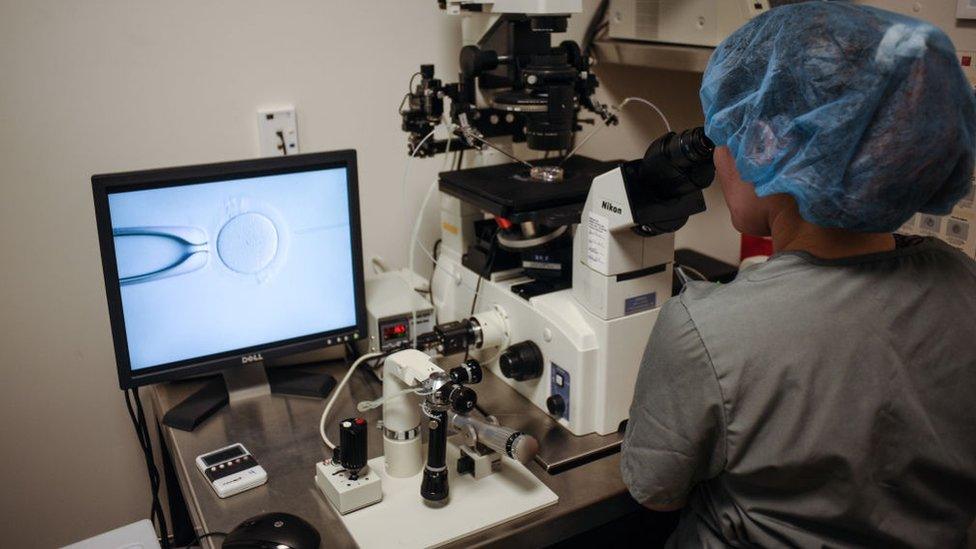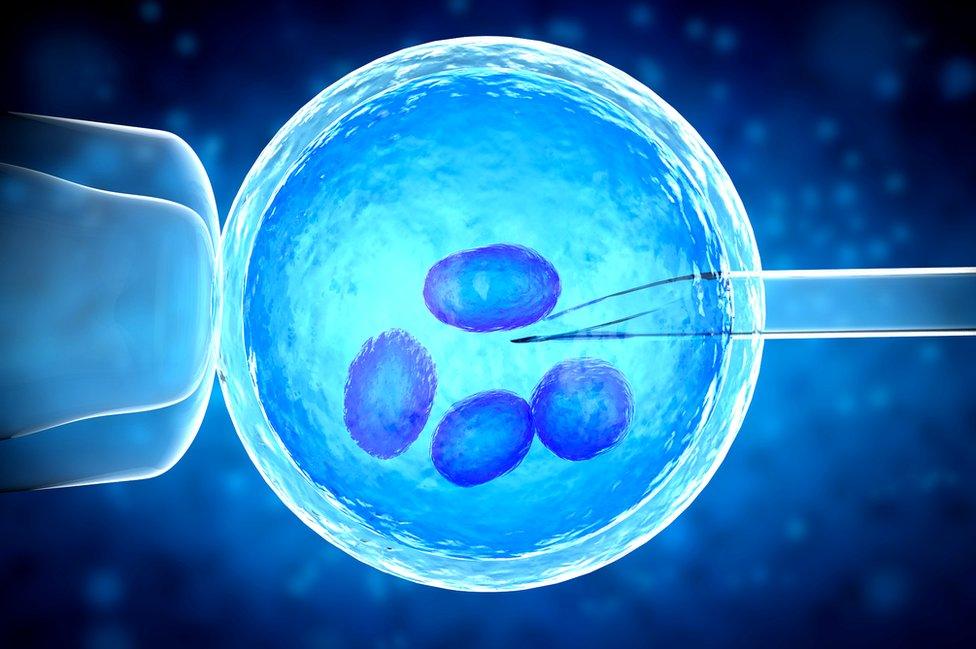Coronavirus: Scotland's four NHS fertiilty clinics to reopen
- Published

IVF treatment was paused across the UK during March
Scotland's NHS fertility clinics have been given the green light to reopen after being forced to close because of the coronavirus outbreak.
IVF treatment was paused across the UK during March as a precautionary measure.
Other elective NHS treatments were also put on hold.
The four NHS centres in Scotland will now be able to resume services after showing they could provide "safe and effective treatment"., external
There must be social distancing in waiting rooms and more appointments by phone may be used, as well as personal protective equipment (PPE).
'Much-needed comfort'
It is thought that about one in seven couples experience difficulty having children.
The Human Fertilisation and Embryology Authority (HFEA) regulatory body said the closure of clinics had been "extremely distressing" for patients.
Scotland's public health minister, Joe FitzPatrick, said the reopening of the facilities in Glasgow, Edinburgh, Aberdeen and Dundee would "provide much-needed comfort and reassurance".
He added that women close to the upper age limit for IVF on the NHS "will not be disadvantaged and subject to a clinical assessment".
"They will still continue to receive treatment," Mr FitzPatrick said.
Couples are entitled to three rounds of IVF on the NHS if the woman is under 40 but that is cut to one when they are aged between 40 and 42.
"Scotland has the most generous and fairest NHS IVF treatment in the UK and we want to ensure clinics are able to contact patients as quickly as we can safely do so," Mr Fitzpatrick added.
Gwenda Burns - chief executive of the Fertility Network, external which offers specialist support in the UK - welcomed the news, which she said followed an "extremely difficult time for patients".
She said: "We are working closely with clinics and the Scottish government to ensure that treatment can start as soon as possible while providing a safe service to patients with all the necessary precautions in place."

In Vitro Fertilisation (IVF)

An egg is removed from the woman's ovaries and fertilised with sperm in a laboratory.
The fertilised egg is then returned to the woman's womb to develop.
IVF worked for the first time on 10 November 1977. On 25 July 1978, the world's first IVF baby, Louise Brown, was born.
On average, IVF fails 70% of the time.
The highest success rates are for women under 35, one-third of treatment cycles are successful.
On average, it takes almost four-and-a-half years to conceive with IVF.
